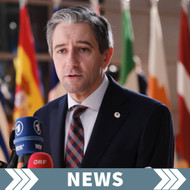Irish Hospitality Sector Set for VAT Relief, But Economic Clouds Remain
Posted by Emma on 19th Jun 2025 Reading Time:
The Government has pledged to reduce the VAT rate for the hospitality sector in the upcoming budget, describing the commitment as “solemn” and necessary to support small businesses across the country.
Speaking at the National Economic Dialogue, an annual forum where various groups present their budget proposals, Tánaiste Simon Harris confirmed the Government’s intention to cut VAT for hospitality. He framed the move not as a tax break for businesses but as a measure to protect jobs and livelihoods in towns and villages nationwide.
“When you say you’re going to reduce the VAT rate for the hospitality sector, that costs a significant amount of money,” Harris said. “We’re very serious about that pledge. It’s not about a tax cut for businesses; it’s about recognising that in every town and every village, there are small businesses creating employment that want to be able to keep going and need to be supported.”
The current VAT rate for most hospitality services in Ireland, including restaurants, cafés, and catering, is 13.5%, and the Government’s pledge would see this reduced back to the lower 9% rate that was temporarily introduced during the pandemic to support the sector.
Despite this commitment, Harris emphasised that no final decisions had been made regarding the overall shape of Budget 2026. He acknowledged the financial pressure such a commitment would place on the exchequer and hinted that the Government might look beyond traditional tax cuts to help with the broader cost of living.
Minister for Finance Paschal Donohoe, also addressing the event, offered a more cautious tone. He warned that the near-term economic outlook remains uncertain, particularly due to ongoing concerns over tariffs. These uncertainties, he said, are already affecting both consumer confidence and business spending.
Donohoe explained that the Government has revised its growth expectations as a result. Modified domestic demand, which excludes the effects of multinational corporations to give a clearer view of domestic activity, is now projected to grow by 2.5% this year and 2.75% next year. However, if current tariffs continue, growth could be up to 1.5 percentage points lower by the end of 2026.
While Donohoe noted that the recent spike in inflation has passed, he acknowledged that prices remain elevated. He said Ireland is entering a “markedly different economic environment” shaped by growing global tensions and fragmented trade relationships.
“Tariffs are a symptom of this new normal,” he said. “Taxes on imports lead to higher prices for businesses and consumers and create disincentives for firms considering long-run investments.”
Donohoe also confirmed that proceeds from the recent Apple tax case — which boosted Ireland’s surplus by over €25 billion last year — would be used to improve national infrastructure, with housing, energy, water, and transport among the key focus areas.
However, he warned against overreliance on these exceptional sources of revenue. “Much of the headline balance arises from a handful of large multinationals. It is not appropriate – indeed, it could be dangerous – to plan based on these receipts being permanent,” he said.
As the Government prepares its next budget, the balancing act is clear: supporting sectors like hospitality while navigating a changing and uncertain global economy. The challenge will be to deliver meaningful support without compromising long-term stability.




